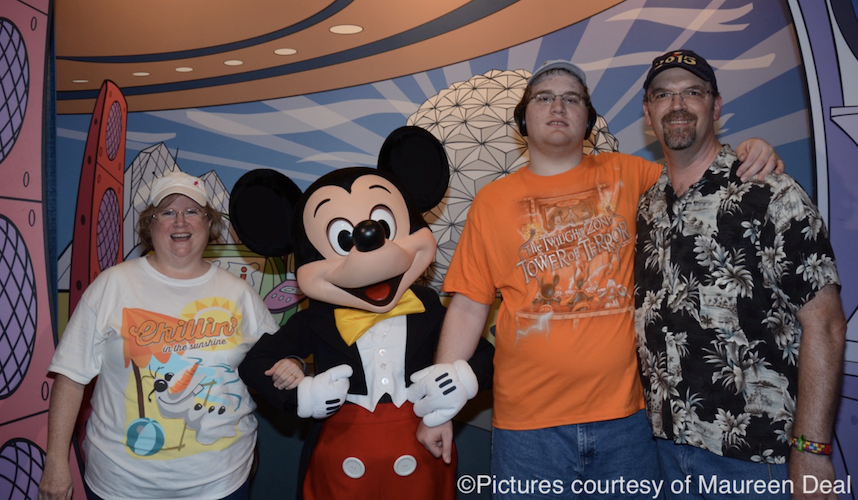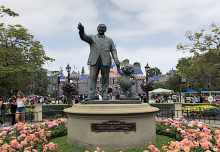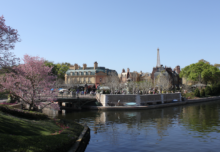 Tips by Maureen Deal, creator of AutismAtTheParks.com, an informational guide for those who have family members with autism or other developmental disabilities.
Tips by Maureen Deal, creator of AutismAtTheParks.com, an informational guide for those who have family members with autism or other developmental disabilities.
Vacationing at Orlando’s theme parks can be a challenging yet incredible experience for families who have a child with autism. Some tips that help plan your successful vacation are be prepared, know how your child reacts in numerous environments and to different stimuli and know the accommodations the parks offer children on the autism spectrum.
Preparation can include:
- Has your child ever stayed in a hotel or condo? Practice at a local hotel. Identify what you need to make your child more comfortable – their favorite pillow, a white noise maker or familiar items that help them transition to an unfamiliar environment. And for safety, do you need an extra door lock?
- Visit local places where they can practice being in crowds and waiting in line. Use different toys or sensory items to help pass the time. More queues at the theme parks are now becoming interactive which helps entertain kids while they wait.
- Consider renting a stroller for smaller children at the theme parks to prevent fatigue and exhaustion that can contribute to meltdowns.
Even though you are visiting wonderful theme parks, the extra stimuli may trigger some of your child’s challenging behaviors. Read and learn more about the rides, attractions, and theme park environment so you can prepare for a successful vacation from sources like Unofficial Guides. Consider some of these ideas.
- Know your child’s sensitivities. If your child is sound sensitive, you may want to purchase some noise cancelling headphones or foam earplugs to wear while watching the fireworks, eating in a loud restaurant or during loud rides (if permitted).
- If your child has difficulty with transitions, create a written/picture schedule. For some children, social stories about what to expect can help them transition to vacation mode, understand waiting their turn or how to appropriately meet characters.
- Know if your child is a sensory seeker—loves to spin or feel g-forces or if they are a sensory avoider—loud noises, extreme smells, rides with sudden moves. Our son is both—he loves coasters (the more intense the better), gets queasy on the tea-cups and cannot tolerate fireworks, even with headphones.
- Avoid known triggers that contribute to behavior issues: hunger, fatigue and over stimulation are the most common triggers. Have plenty of water and healthy snacks to eat throughout the day. And know when enough is enough – take breaks, leaving the park, if necessary, to swim at the hotel or take a nap and return to the parks later if appropriate.
 Visit the theme park’s guest relations department and inquire about any accommodations that can be provided like an alternative to standing in long queues and/or using your child’s stroller as a wheelchair.
Visit the theme park’s guest relations department and inquire about any accommodations that can be provided like an alternative to standing in long queues and/or using your child’s stroller as a wheelchair.
Enjoying the major theme parks in Orlando almost every week for the last several years, we have found the Cast Members and Team Members (workers) treat our son wonderfully and many go out of their way to do something special for him. Planning ahead but also being flexible knowing that unexpected things may happen, helps make your vacation at Orlando’s theme parks a wonderful memory that will last a lifetime.
About the author: Maureen Deal is married and a mom to Zachary who has autism. Since she and her family moved to central Florida in 2007, they have visited Orlando’s theme parks nearly every weekend. She created the website AutismAtTheParks.com as an informational guide for those who have family members with autism or other developmental disabilities to navigate Orlando’s major theme parks.
You can follow Maureen on social media:Facebook: AutismAtTheParks
Twitter: @AutismAtThePark
Instagram: AutismAtTheParks
Pinterest: AutismAtThePark
For more tips on visiting Walt Disney World with kids check out The Unofficial Guide to Walt Disney World with Kids. If you enjoyed this post, please subscribe to our YouTube channel and sign up for our newsletter here.





